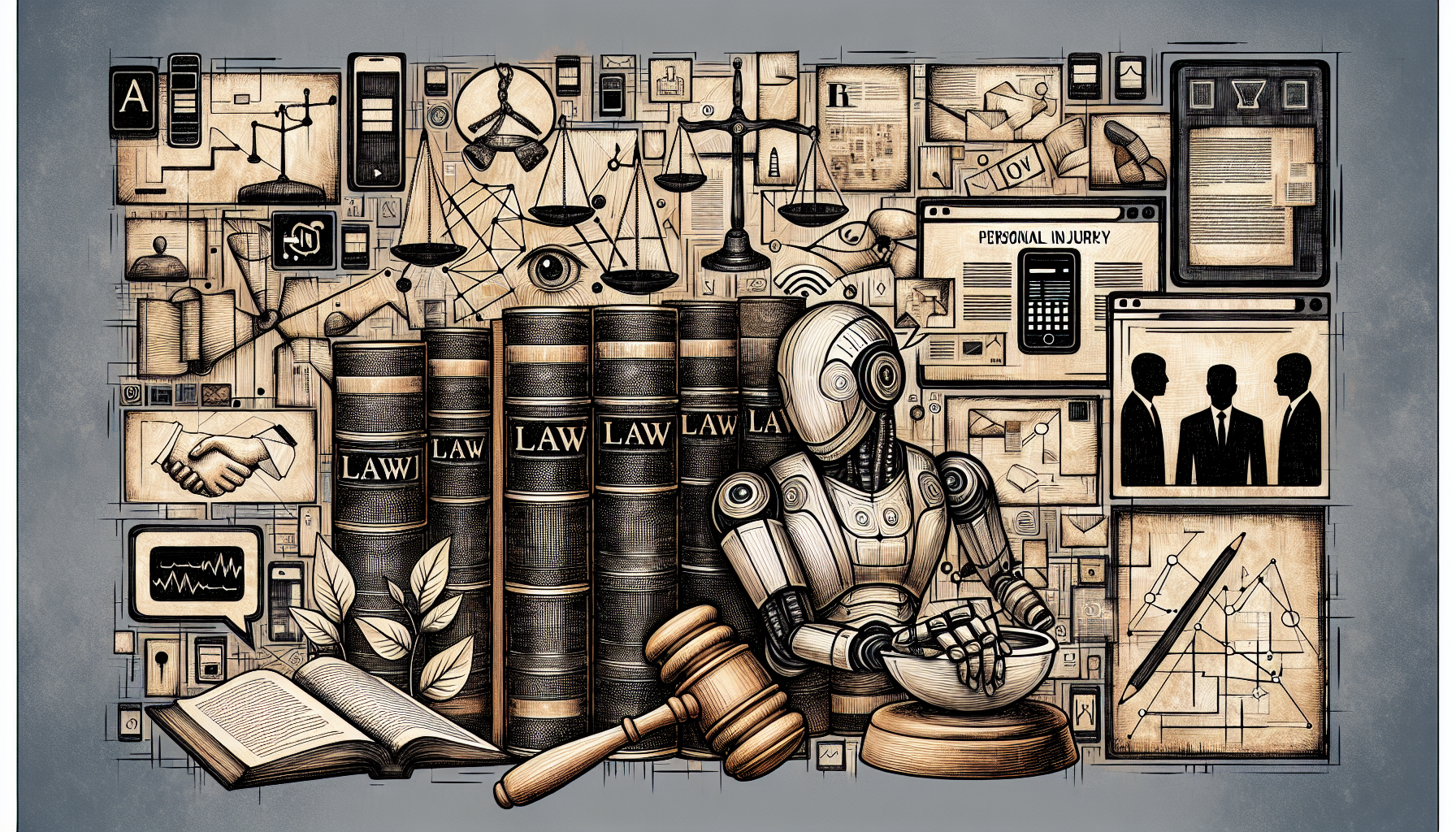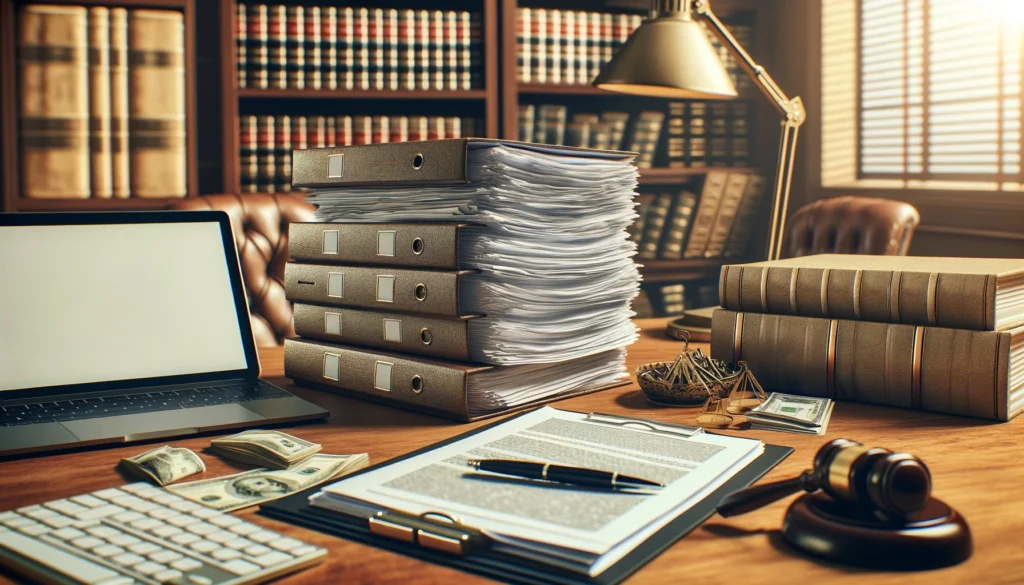
Introduction: The Intersection of AI and Paralegal Efficiency
The legal industry is undergoing a profound transformation driven by artificial intelligence (AI). Tools like machine learning and natural language processing are reshaping how legal services are rendered. For paralegals, whose work mandates precision and speed, AI presents unprecedented opportunities.
Traditionally, paralegals have been the backbone of legal research and documentation, demanding rigorous attention to detail and timeliness. With AI advancements, including ChatGPT, these tasks can be performed more efficiently, allowing paralegals to focus on higher-level cognitive tasks.
Unpacking the Power of ChatGPT: A Paralegal’s New Best Friend
ChatGPT, developed by OpenAI, represents a sophisticated application of large language models (LLMs). It can understand and generate human-like text, making it an invaluable resource for legal professionals.
Among its features are the abilities to perform rapid legal research, draft documents, and even provide summaries of complex legal texts. For paralegals, this means a significant reduction in the time spent on rote tasks, enabling more strategic involvement in case preparations.
Also read:
Crafting the Perfect Inquiry: Essentials of Effective Prompting
Effective communication with ChatGPT begins with well-constructed prompts. Clear, specific, and concise prompts yield the best results, ensuring the AI understands the task at hand.
For example:
- Generic Prompt: “Tell me about personal injury law.”
- Optimized Prompt: “Summarize the key provisions of personal injury law specific to slip and fall cases in New York state.”
In the optimized prompt, specificity ensures relevant and focused responses. Consistently applying these principles can drastically enhance the value derived from ChatGPT.
Also read:
Navigating Personal Injury Law with ChatGPT: Strategies and Techniques
Personal injury law is complex, with nuances varying across jurisdictions. ChatGPT can assist paralegals by providing swift access to statutes and regulations. Here’s how:
- Customized Prompts: Drafting inquiries tailored to specific jurisdictions ensures accuracy. For instance, “What are the statute of limitations for personal injury claims in California?”
- Iteration and Refinement: Initial responses may need tweaking. Follow-up questions like, “Can you elaborate on the exceptions to the statute of limitations for personal injury in California?” help refine the information.
- Deep Dives: Utilize ChatGPT to dissect complex legal texts by asking, “Explain the implications of the comparative negligence rule in Florida personal injury cases.”
This structured approach facilitates navigating the labyrinth of personal injury regulations effectively and comprehensively.
Also read:
Streamlining Case Preparation: From Discovery to Documentation
Case preparation involves multiple steps from discovery to documentation. ChatGPT can streamline these processes through targeted prompts:
- Case Law Research: Ask, “Identify key case precedents relevant to product liability in Illinois.”
- Summarizing Findings: To create concise summaries, use prompts like, “Summarize the main findings of ‘Smith v. Jones’ case regarding employer liability.”
- Drafting Documents: Drafting legal documents can be expedited with prompts such as, “Draft a motion to dismiss for a personal injury case in Texas.”
- Reviewing Documents: For reviewing, prompt with, “Review and suggest edits for this drafted complaint in a personal injury case.”
- Generating Reports: Ask, “Generate a report summarizing discovery findings from the depositions taken in case X.”
By integrating these techniques, paralegals can enhance efficiency, ensuring thorough and timely case preparation.
Also read:
Beyond the Basics: Advanced Applications and Time-Saving Hacks
Maximizing the benefits of ChatGPT goes beyond basic queries. Here are several advanced applications and hacks:
- Integrating Workflows: Incorporate ChatGPT into daily routines with custom scripts and automated tasks.
- Automating Repetitive Tasks: Use ChatGPT to automate routine processes like scheduling or basic research.
- Plugins and Integrations: Employing plugins can enhance productivity. Tools like Zapier can connect ChatGPT with other apps for seamless workflow automation.
By leveraging these advanced uses, paralegals can significantly cut down on time-consuming tasks.
Also read:
Enhancing Accuracy and Reliability: Verification and Cross-checking
Accuracy is paramount in legal work, and while ChatGPT is robust, additional verification is crucial.
- Verification Methods: Always cross-verify ChatGPT outputs with trusted legal resources.
- Utilizing Multiple Sources: Ensure reliability by consulting additional databases and legal tools for cross-checking.
Implementing these practices ensures that AI-assisted tasks meet stringent legal standards of accuracy and reliability.
Also read:
Ethical Considerations and Best Practices
While leveraging AI, it’s essential to navigate ethical landscapes judiciously:
- Client Confidentiality: Maintain stringent protocols to protect client data when using AI tools.
- Data Security: Employ robust security measures to safeguard sensitive information.
Adhering to these principles ensures ethical compliance while utilizing AI technologies.
Conclusion: Embracing the Future of Paralegal Work with AI
In conclusion, AI tools like ChatGPT are revolutionizing paralegal work, driving efficiency and enabling more strategic involvement in legal processes.
Embracing these advancements can transform daily practice, offering a promising future where AI complements and elevates paralegal contributions. Explore and adopt these tools to stay ahead in the legal field.


